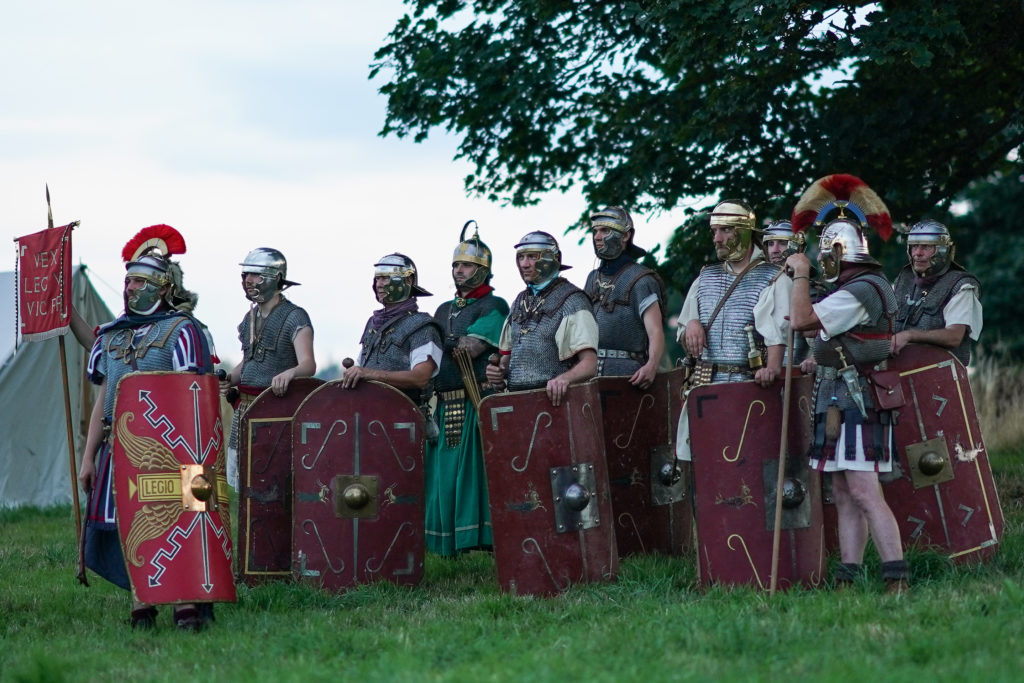For a few days this September, a surprising topic went viral on social media: the enduring legacy of ancient Rome.
The frenzy was apparently sparked by a TikTok video in which a woman asked her husband how often he thought about the Roman Empire. She was confused — and even stunned — when he reported that Rome was on his mind every day.
As it turns out, this was not an isolated case. Women on social media proceeded to ask the men in their lives the same question and have been shocked to discover that, in many cases, it is quite frequently. The fad even caught the attention of the Washington Post, which reported that many men surveyed reported thinking about Rome at least once daily, if not more.
One can certainly sympathize with the confusion of women trying to understand why their husbands devote headspace to the politics of Augustus or the victories of Trajan.
But as a history nerd myself, I think it is exceptionally fitting to think about Rome. If anything, we don’t think about it enough. So, here are a few reasons why you should think more about the Roman Empire.
1. Architecture
The Romans were intrepid builders, developing some of the most enduring architecture in human history. They are known for the innovative use of the arch, as well as being the first builders in history to utilize domes on a monumental scale. Many Roman domed structures are still with us today, like the Pantheon in the city of Rome.
Because of their beauty, strength, and grandeur, Roman architectural styles have been adopted all over the Western world as exemplifying law and order. This is why our Founding Fathers adopted the Roman style for our federal building and monuments. The Lincoln and Jefferson Memorials are virtual duplicates of Roman temples. To this day, Roman architectural elements are employed in buildings of great social importance, such as courts, libraries, and government buildings.
In fact, in 2020 the federal government mandated that all new federal buildings in Washington D.C., be built in the classical (i.e., Roman) style. From Pennsylvania Avenue to Main Street, U.S.A., Roman architecture is everywhere.
2. A legal legacy
The Romans were also known for their contributions to modern jurisprudence. Forged during the republican era (509-27 B.C.), their legal institutions created a stable framework for a government that combined elements of monarchy, aristocracy, and democracy. After the Roman Republic became the Roman Empire, the Romans brought their laws to the far-flung corners of their domain, from the frontiers of Scotland to the Nile Delta.
The most amazing thing about Roman law is its longevity, as it continued to be used long after the empire fell. Many medieval kingdoms used Emperor Justinian’s legal collection, “Corpus Iuris Civilis,” and the Catholic Church also developed its Canon Law based on this work.
In the U.S., the Founding Fathers were all versed in Roman law, and the Roman legal principles would go on to be cited by the Supreme Court numerous times.
Today, the principles at the heart of most Western legal systems today are derived from Roman law.
Lads. Rome is being discussed. We are so back. https://t.co/2E5C6NbGFC
— Daily Roman Updates (@UpdatingOnRome) September 15, 2023
3. Linguistic patrimony
Thinking about Rome every time you pray might be a bit much, but here’s a thought:
As the Romans spread over the Mediterranean world, they brought Latin with them, making it a language of unification. It became the language of the educated, the powerful, and the cultured. The precision and logic of Latin made it an ideal vehicle to communicate complex ideas — whether in law, theology, or literature.
As the Roman Empire dissolved in the west, Latin became the basis of the “Romance” languages (Italian, Spanish, French, Portuguese, Romanian, etc.) Though not a Romance language, 60% of English comes from words borrowed from Latin — and the more sophisticated our vocabulary, the more “Latinized” our speech becomes. Latin was, of course, also preserved as the ecclesiastical language of the Catholic Church in the Latin Rite. When it comes to how we communicate and worship, Rome still lives.
4. Masters of engineering
The Romans were some of history’s great problem-solvers. Becoming master engineers, they constructed durable roads to connect their sprawling empire. In fact, modern road construction still uses the methods pioneered by the Romans — land surveys followed by careful preparation of the subsurface.
Their engineering genius still yields surprises today: In 2017, analysis of Roman marine concrete revealed the secret of how the Romans could build durable underwater structures. Their concrete was made of lime and volcanic ash, which, when exposed to water, hardened while curing. Rather than be eroded by the water, the Roman marine concrete actually got harder as time went by.
5. Rome as a cautionary tale
Like the U.S., Rome threw off its monarchy to adopt a representative government, expanded rapidly to become a regional power, competed with other superpowers for total dominance, endured a civil war, and dealt with crises relating to war, immigration, slavery, inflation, and corruption.
While history doesn’t repeat itself, it does rhyme, and those interested in the fate of our own republic would do well to consider Rome a cautionary tale. The Roman experience may yet be relevant to our own.
6. It’s just entertaining
Perhaps the best reason to think about Rome is that its history can keep you endlessly entertained.
The sacrificial death of Marcus Atilius Regulus is one of the most moving historical deaths you will ever read (enough to make even St. Augustine marvel). The drama of Hannibal and the Second Punic War was like the World War II of the ancient world. And the tactics of Julius Caesar at the Battle of Alesia are more exciting than any Hollywood movie. Don’t know what any of these references refer to? Study ancient Rome. You won’t regret it.

